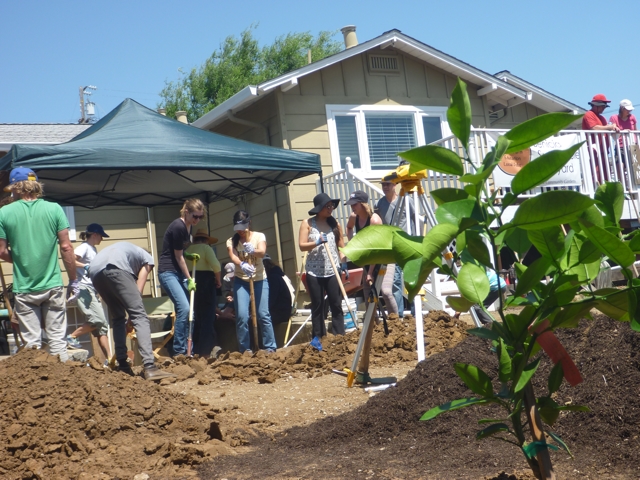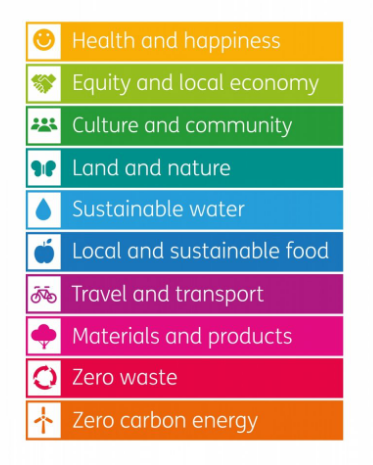By Elena Karoulina, Executive Director

At Sustainable Solano, we are often asked how we come up with our programs and ideas. Our answer: We plant a seed and nourish it until it roots, grows and matures. A seed can be a spark of imagination or an inspiration from a community member, another organization, a book or article, or even a documentary.
We do not rush to put the seed into the ground, we need to ensure it is viable and that the plant it will grow into is strong, healthy and is needed in the community it is planted in. Most programs have been in what we internally call a “concept stage” for months or even years. When the time is right, when the soil is fertile, when rain is in the forecast (for us, that means funding), the seed is planted. Most programs start as a small pilot to ensure we learn the most difficult lessons early, on a smaller scale.
One of these conceptual seeds has been planted this month – our vision for a Sustainability Curriculum for high school students.
Framed by One Planet Living, a sustainability framework from Bioriginal, we envision a comprehensive education and certification/workforce development program aiming to equip young members of our communities and future leaders with a deep understanding of society’s sustainability and resilience, rooted in the system design and appreciation and knowledge of planetary limits, and practical skills to actively participate in the creation of a more just and resilient world.
We envision a four-year curriculum, correlated with California’s state curriculum for high schools, with a focus on the four pillars of the One Planet Living principles: Land & Nature, Sustainable Water, Local and Sustainable Food, and Zero Carbon Energy. The other six elements are softly built into the core curriculum (e.g. Health & Happiness or Culture & Community).

From Bioregional’s One Planet Living framework
We would like to offer a comprehensive standard training to all schools in the county, taught by Sustainable Solano instructors, followed by an optional hands-on practical training and certification. These practical skills will be developed and practiced on real projects in our communities — replacing the remaining lawns, installing greywater systems and solar panels, working in community kitchens and retrofitting houses for sustainability. This workforce development should be followed by paid internships, where funds earned by trainees are deposited into their savings accounts in local credit unions. These payments will not only provide trainees with a starter banking account and start them saving, but will also teach a soft lesson in the local economy.
The program’s outline as of now is:
Freshman Year: Systems Thinking. Planetary Limits. Protecting and Restoring Land. Permaculture and Biomimicry.
Optional practical training/certification: 72-hour Permaculture Design Certificate (PDC)
Sophomore Year: Sustainable Local Water. Watersheds. Secondary Water (greywater and rainwater). Water Budget for All Landscapes. Flooding and Drought.
Optional practical training/certification: Greywater Installer Training
Junior Year: Local and Sustainable Food. Solano Local Food System. Foodsheds. Climate-Smart Agriculture. Humane Farming. Healthy Diets.
Optional practical training/certification: Food Handler Certification, Cottage Food Operator or State Food Safety Certification (TBD)
Senior Year: Renewable Energy.
Optional practical training/certification: TBD (e.g. solar panel installer)
We will be developing these ideas into solid business plans and grant proposals in the next couple of years. We are beginning to connect with other organizations doing similar work in the county and the state to form partnerships that strengthen each organization and further our missions.
Last month we received funding to plant the first seed: Solano Community Foundation awarded an ED Plus grant to Sustainable Solano to develop a pilot curriculum program in partnership with St. Patrick-St. Vincent School in Vallejo! This very first project will focus on sustainable water and permaculture; the materials designed for the students will enhance their classroom learning, especially math and science classes. The hands-on practical application will involve building swales to slow, spread and sink rainwater, building a rainwater collection system and learning about greywater. The students will even build an earth bench using natural on-site materials. This project runs in conjunction with a demonstration garden coming to this school under another program, Solano Sustainable Backyard, funded by Solano County Water Agency.
Please let us know what you think about this idea! We are looking for support, partnerships and inspiration to bring this vision to life in Solano County!

